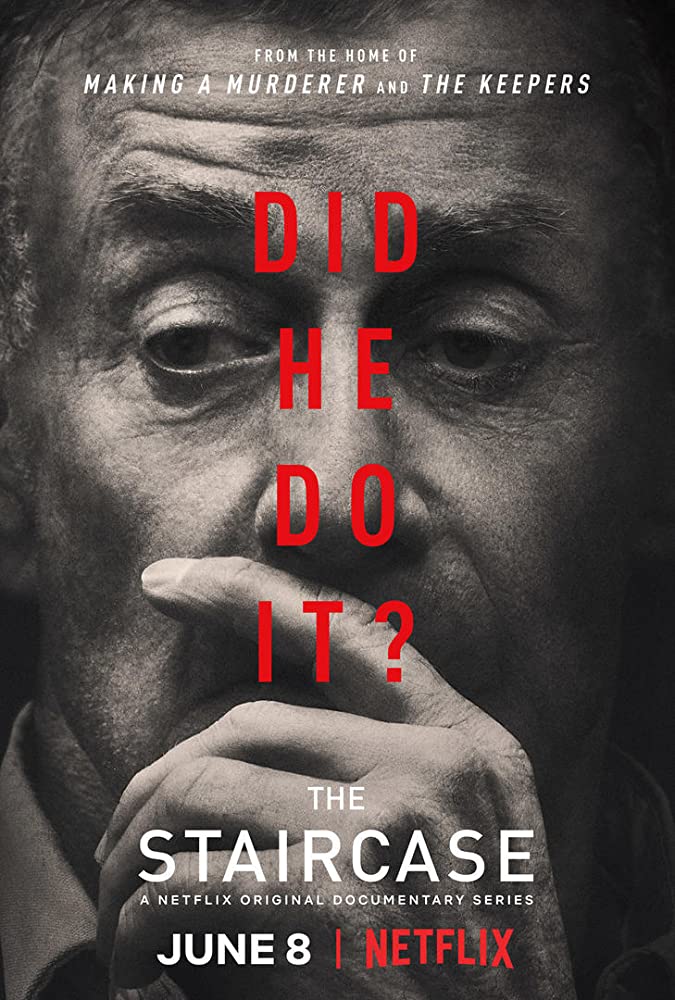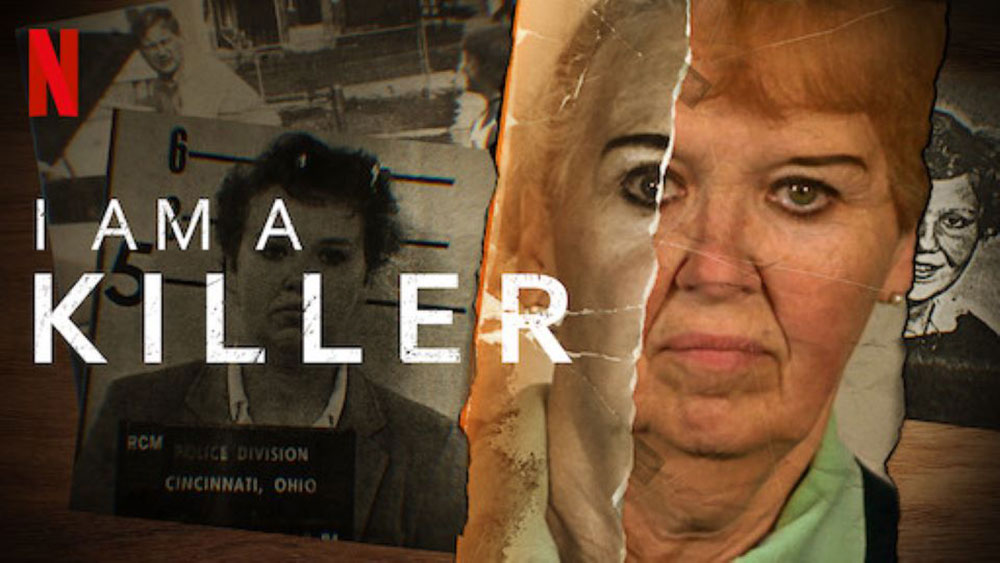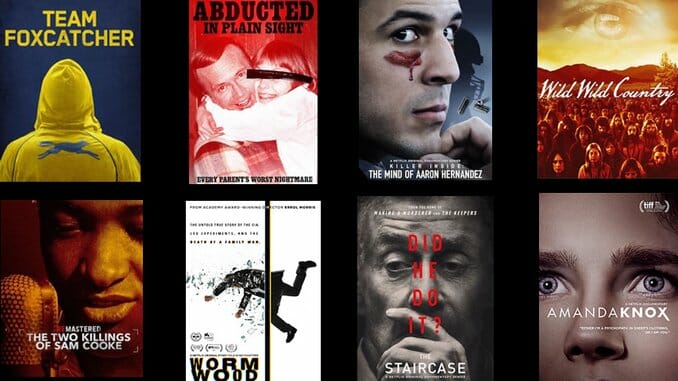True Crime Documentaries - Your Next Obsession
When you settle in for an evening of watching, perhaps you find yourself drawn to stories that explore the darker sides of human experience. From the dramatic confrontations you might remember in shows like 'Tiger King' to the unsettling events shown in 'The Staircase' and 'Making a Murderer,' there's a whole collection of compelling true crime documentaries waiting for you to discover on Netflix. These programs, you know, really pull you into situations that are sometimes hard to believe, making you wonder about what actually happened.
Your next compelling watch, it's almost, is right there, ready for you. These are the top true crime documentaries available to stream, offering a wide array of stories that have captivated audiences around the world. The collection includes films and series found on platforms like Hulu, Netflix, HBO, Amazon Prime, and quite a few others. We've, in a way, done the detective work for you, figuring out just where to find these gripping narratives that keep you on the edge of your seat.
What you'll find are only the very best true crime documentaries and television episodes, focusing on a variety of serious subjects. This means you can expect to see accounts involving serial killers, stories of people who have gone missing, tales of individuals who committed multiple killings over a short period, mass murderers, those who harmed their own families, and even cases of killings done just for the thrill of it. Each one, basically, offers a look into real events that have left a lasting impact.
- 10 Things I Hate About You
- Jelly Roll Weight Loss 2024
- Blake Lively Met Gala 2024
- Gladiator 2 Cast
- Drake Gaines
Table of Contents
- True Crime Documentaries - What Makes Them So Captivating?
- Why Do We Feel a Pull Towards True Crime Documentaries?
- The Range of Stories in True Crime Documentaries
- Are True Crime Documentaries Always Fair?
- Spotlighting Voices in True Crime Documentaries
- The Impact of True Crime Documentaries on Public Discourse
- How Do True Crime Documentaries Help Us Learn?
- Finding Your Next True Crime Documentary
True Crime Documentaries - What Makes Them So Captivating?
People often wonder what it is about true crime documentaries that makes them so hard to turn off. It's like, you know, there's something about real stories, especially those that involve a puzzle or a great deal of mystery, that really grabs our attention. These films and series take us into situations that are far from our everyday lives, yet they feel very, very real because they are based on actual events. You get to see the process of investigations, hear from people who were there, and often, you're left with questions that linger long after the credits roll. It's not just about the events themselves, but about the human element, the choices made, and the consequences that follow.
Consider the way these shows are put together, too. They often use interviews, archival footage, and sometimes even reenactments to paint a picture of what happened. This way of telling a story, you see, helps us to connect with the people involved, whether they are victims, investigators, or even those accused of doing something wrong. It gives us a sense of being a part of the search for answers, which can be quite a powerful feeling. For instance, a show might follow a case over many years, showing how evidence is found, how theories change, and how the people involved cope with what has occurred. This long-form storytelling, I mean, really lets you sink your teeth into the material.
There's also a certain draw to trying to figure things out alongside the people on screen. You might find yourself, in some respects, trying to piece together clues, guessing who did what, or thinking about what you would have done in a similar situation. This active engagement, it's pretty much, a big part of the appeal. It turns watching into a kind of mental exercise, where you're not just passively taking in information but actively trying to solve a puzzle. This can be, honestly, a very satisfying experience, even if the outcomes are often sad or unsettling. It allows for a safe way to explore situations that are generally, very much, outside of our normal experiences.
- Simon Cowell Son
- Sean Preston Federline
- Ray Nicholson
- Hollywood Walk Of Fame Hollywood Ca
- The Bounty Hunter
Why Do We Feel a Pull Towards True Crime Documentaries?
It's a question many people ask: why are we, as viewers, so drawn to true crime documentaries? Some suggest it's a basic human curiosity about the unknown, about what drives people to commit such acts, or about how justice systems work. There's a part of us, you know, that wants to understand the darker parts of life, perhaps to feel more prepared or just to satisfy a deep sense of wonder about human nature. It's like looking at a car crash; you don't want to see it, but you can't quite look away. These stories, in a way, offer a glimpse into extreme situations that we hope to never encounter ourselves.
For others, it might be about the intellectual challenge. These documentaries often present a mystery, a puzzle that needs solving. Viewers, you see, get to play detective from the comfort of their own homes, trying to piece together the events, analyze motives, and consider different possibilities. This mental exercise can be quite stimulating, and it provides a sense of accomplishment when you feel like you've understood a complex situation. It's a bit like reading a good mystery novel, but with the added layer of knowing that what you're watching actually happened. This can be, like, really thought-provoking.
Then there's the emotional connection. Even though these are real events, the way they are presented can evoke strong feelings – sadness for the victims, anger at the perpetrators, admiration for those seeking justice. These shows, in some respects, allow us to process difficult emotions in a controlled setting. They can also, frankly, spark conversations about important social issues, like legal system fairness, mental well-being, or the consequences of various actions. So, it's not just about the crime itself, but about the broader human experience that surrounds it. This makes them, actually, much more than just entertainment.
The Range of Stories in True Crime Documentaries
The world of true crime documentaries covers a really wide range of stories, which is, you know, part of what makes them so interesting. You might find yourself watching something about a serial killer whose actions left a trail of despair, or a series that follows the search for a person who just vanished without a trace. There are also accounts of spree killings, where events happen over a short, intense period, and mass murderers whose acts affect many people at once. Sometimes, you even see cases where family members are harmed, or where individuals commit acts for what seems like, honestly, just a thrill. Each type of story, basically, offers a different window into human behavior and the consequences of certain choices.
What's really striking is how these shows can focus on the specific details of a case, like the evidence found or the statements given, but also look at the bigger picture. They often explore the motivations behind these actions, the psychological aspects of the individuals involved, and the impact on communities. It's not just a recounting of facts; it's an attempt to understand the 'why' behind the events, which can be, pretty much, a very complex thing to explore. For instance, a documentary might spend a lot of time on the background of a person who committed a crime, trying to show how they got to that point. This can be, in a way, quite revealing.
Beyond the specific types of crimes, these documentaries also vary in their approach to storytelling. Some are very much focused on the legal process, showing trials, appeals, and the efforts of lawyers. Others might concentrate on the victims and their families, giving a voice to those who have suffered. And then there are those that look at the broader societal issues that might have played a part, like poverty, mental health challenges, or systemic problems. This variety, you see, means there's almost always a true crime documentary that will appeal to whatever aspect of these stories you find most compelling. It really is, you know, a very diverse collection of narratives.
Are True Crime Documentaries Always Fair?
A question that often comes up when people talk about true crime documentaries is whether they always present a fair or complete picture. It's a really important point, because these shows, you know, have a lot of influence on how we perceive real events and the people involved. Sometimes, a documentary might focus heavily on one side of a story, or emphasize certain details over others, which can shape a viewer's opinion. This isn't always intentional, but it's something to be aware of when you're watching. The way a story is told, in some respects, can make a big difference in how it's understood.
It's also worth considering that these films are, at the end of the day, created by people with their own perspectives and decisions about what to include or exclude. They have to make choices about who to interview, what footage to use, and how to structure the narrative. These choices, you see, can subtly guide the viewer towards a particular conclusion, even if that's not the only possible one. So, while they are based on real events, they are still, basically, interpretations of those events. This means, honestly, that critical thinking is pretty much essential when you're watching them.
Moreover, the legal system itself is complex, and sometimes documentaries simplify things for the sake of storytelling. This can lead to a less nuanced understanding of legal procedures, evidence rules, or the challenges faced by investigators and lawyers. While the goal is often to inform and entertain, it's not always possible to capture every detail or every perspective in a single series. So, it's good to remember that what you're seeing is, usually, a curated version of events, rather than the complete, unedited truth. This is, you know, a very important distinction to keep in mind.
Spotlighting Voices in True Crime Documentaries
One of the truly powerful things that true crime documentaries can do is bring attention to voices and stories that might otherwise go unheard. For a long time, many of these shows, you know, seemed to focus primarily on white victims, which meant that the experiences of other groups were often overlooked. However, there's a growing recognition of the need for more diverse perspectives, and some recent documentaries are doing a much better job of amplifying these important narratives. This shift is, in a way, really making a difference in how we understand crime and its effects on different communities.
Take, for instance, a particular documentary that makes a point of highlighting the perspectives of Black women. This kind of storytelling is incredibly important because it sheds light on issues that might not receive enough attention in mainstream media. It can reveal specific challenges, systemic problems, or the unique ways that certain communities experience crime and justice. By giving a platform to these voices, the documentaries, basically, contribute to a more complete and fair discussion about these serious topics. It's about ensuring that, you know, everyone's story has a chance to be heard and understood.
This commitment to a wider range of experiences doesn't just make the documentaries more comprehensive; it also makes them more impactful. When you hear from a variety of people, you gain a deeper understanding of the human cost of crime and the broader societal implications. It challenges preconceived notions and encourages viewers to think more critically about how different groups are affected. So, while the core of true crime is often about solving a mystery or understanding a past event, these films also, actually, serve a vital role in promoting empathy and awareness about social issues. This is, really, a very positive development.
The Impact of True Crime Documentaries on Public Discourse
True crime documentaries often do much more than just tell a story; they can spark widespread conversations and even influence public opinion, which is, you know, a very significant impact. These films and series frequently dig into cases involving miscarriages of justice, where people might have been wrongly accused or convicted, or they explore unsolved mysteries that have baffled investigators for years. By bringing these issues to a wider audience, the documentaries can put pressure on legal systems, encourage new investigations, or even lead to changes in laws. It's like, in a way, they become a form of public advocacy.
Consider the series that, for example, turned its focus on aspiring lifestyle vlogger Gabby Petito. This particular series, as Laura Jane Turner mentioned in Digital Spy, was definitely worth paying attention to. It brought a very high level of public awareness to a missing persons case that resonated with many people, leading to extensive discussion online and in the news. This kind of attention, you see, can sometimes provide new leads for investigators or simply keep a case in the public eye, preventing it from being forgotten. The power of these documentaries to mobilize public interest is, honestly, quite remarkable.
Moreover, these shows often prompt viewers to think about bigger questions related to justice, ethics, and human behavior. They can make us question assumptions about guilt and innocence, the reliability of evidence, or the effectiveness of our institutions. This kind of critical engagement is, pretty much, a valuable outcome. It means that the documentaries are not just about entertainment; they are also about education and prompting societal reflection. So, they contribute to a broader public discourse, helping us to collectively consider how we deal with crime and its consequences. This is, in some respects, a very important function.
How Do True Crime Documentaries Help Us Learn?
Beyond the entertainment value, true crime documentaries can, in a way, offer us quite a bit to learn. They often provide insights into the workings of the legal system, showing how investigations are conducted, how evidence is collected, and how trials unfold. For many people, this is their main exposure to the details of criminal justice, and it can be quite enlightening. You get to see the painstaking efforts of law enforcement, the challenges faced by prosecutors and defense attorneys, and the emotional toll on everyone involved. It's like, you know, a practical lesson in civics and human behavior.
They also, sometimes, shed light on the psychological aspects of crime. While they don't always offer definitive answers, they can explore the possible motivations behind certain actions, or the impact of trauma and circumstance on individuals. This can help us to understand, even if only a little, the complexities of the human mind and the factors that can lead to extreme behavior. It's not about excusing actions, but about trying to comprehend them, which can be, honestly, a very difficult but important process. This helps us, in some respects, to think about prevention and support.
Furthermore, these documentaries often highlight the resilience of victims and their families, showing their strength in the face of immense loss and hardship. Their stories can be a powerful reminder of the human spirit's capacity to endure and to seek justice. This aspect, you see, can be very moving and inspiring, even amidst the sadness of the events. So, while the subject matter is often dark, there are also elements of hope and determination that come through. This makes them, basically, more than just a recounting of terrible events; they are also stories of survival and the ongoing pursuit of truth.
Finding Your Next True Crime Documentary
With so many options out there, finding your next true crime documentary can feel, you know, a bit like looking for a needle in a haystack. But fear not, because there are, actually, 53 of the very best true crime documentaries available to stream right now, waiting for you to discover them. Whether you're looking for something that will keep you guessing until the very end, or a series that explores a miscarriage of justice, the choices are plentiful. The good news is that these shows are spread across various platforms, so you're likely to find something that fits your viewing preferences and your streaming subscriptions.
To help you out, we've, in a way, done the groundwork to identify where to find these compelling stories. From the high-profile cases that made headlines around the world to lesser-known but equally gripping tales, the list includes something for every true crime enthusiast. You might find a series that focuses on a single, complex investigation, or one that covers multiple related cases, giving you a broader view of a particular type of crime. It's like, pretty much, a treasure map for your next binge-watching session, making it easy to just pick one and start watching.
So, whether you're interested in the psychological aspects of crime, the intricacies of legal battles, or the human stories behind the headlines, there's a true crime documentary out there that's worth your attention. These films and series, you see, offer a unique window into real events, prompting thought and discussion long after the screen goes dark. They are, in essence, a way to explore the complexities of the human experience through the lens of actual events, providing a very, very engaging and often thought-provoking experience. Your next watch, basically, is just a few clicks away.

25 Best True Crime Documentaries on Netflix - Top True Crime Shows to

Best Truce Crime Documentaries (2023): 15 Thrilling Murder Docuseries

The 19 Best True Crime Documentaries on Netflix